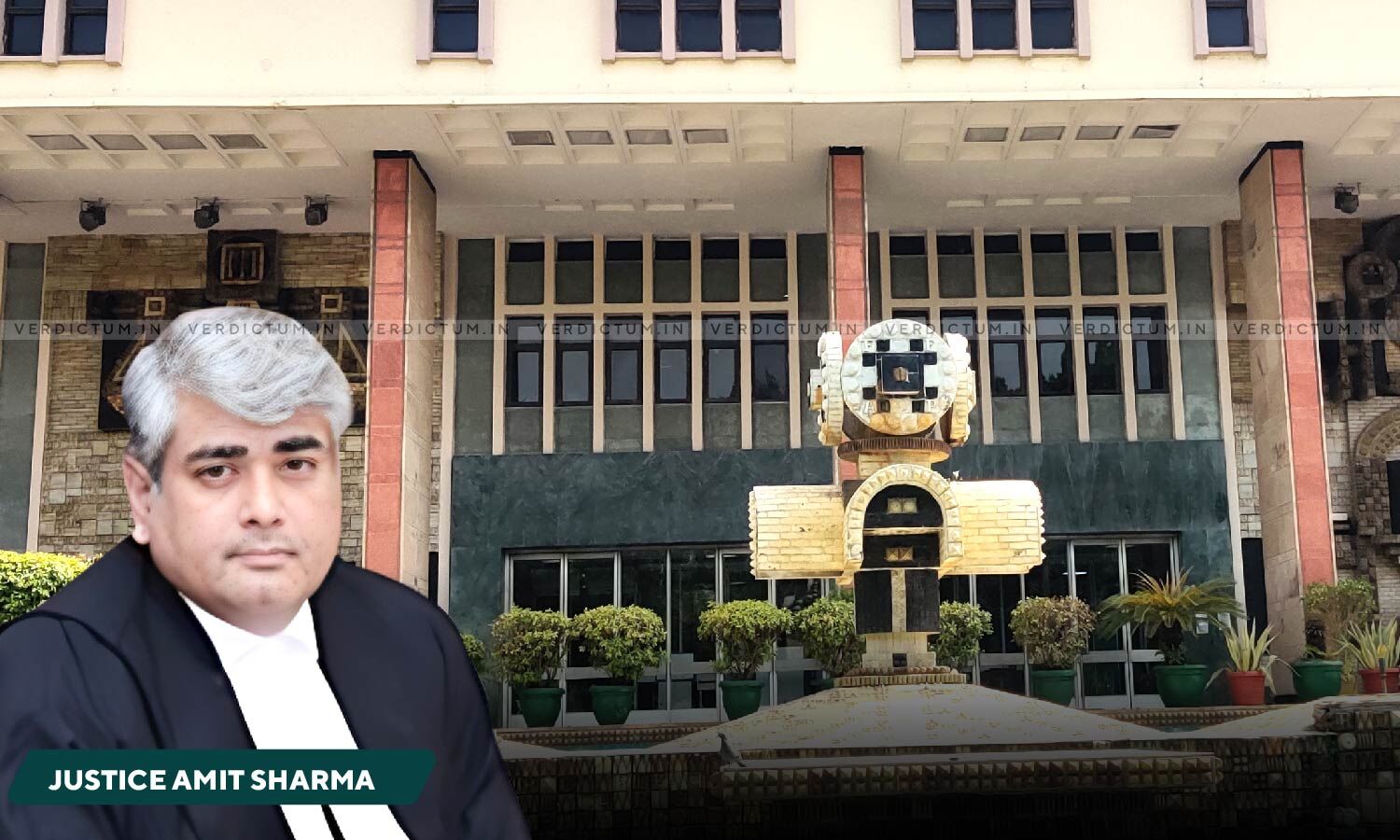Delhi High Court Refuses To Stay Conviction Of Former AIPL Director For Fraudulently Securing Coal Block Allocation Using Forged Documents

The Delhi High Court has refused to stay the conviction of a former director of a private infrastructure company found guilty of fraudulently obtaining allocation of coal blocks by submitting forged documents and misrepresenting his official status before government authorities.
A Single Bench of Justice Amit Sharma observed“…the appellant had deep knowledge about the affairs of AIPL and he had signed both the aforesaid letters as authorized signatory of AIPL whereas he had become authorized signatory of AIPL thereafter. The present appellant had, in his written statement under Section 313(5) of the CrPC, stated that he was briefed about the information submitted with Ministry of Steel (MoS) however, he has not stated anything in respect of the submissions attributed to him in the minutes of the Screening Committee… appellant had deep knowledge about the affairs of M/s AIPL as the same was evident from the revised application given by him for allocation of Coal block and the other application mentioning detailed background of the discussions held in 21st Screening Committee meeting.”
The Court added, “In view of the aforesaid, it cannot be stated, at this stage, that the judgment of conviction is prima facie unsustainable.”
Senior Advocate Siddharth Aggarwal appeared for the Appellant, while Senior Advocate R.S. Cheema represented the Respondent.
Brief Facts
The Applicant was convicted by the Special Judge (CBI), Coal Block Cases, in a case relating to fraudulent allocation of Brinda and Sisai coal blocks in Jharkhand. The allegations included criminal conspiracy, cheating, and the use of forged documents for securing the said allocation.
The Court found that although the applicant had formally resigned as director of the company in 2002, he continued to correspond with the Ministry of Coal in 2003 as if he were authorised to represent the company. The Court held that documents signed by him, including applications and post-presentation submissions, were used before the 24th Screening Committee of the Ministry of Coal, thereby forming part of the deception. He was held guilty under Sections 120B, 420, and 471 IPC.
On December 11, 2024, he was sentenced to rigorous imprisonment for three years and fined ₹20 lakhs, with a default sentence of four months’ simple imprisonment. The sentences were directed to run concurrently.
In the present application, the applicant sought ad-interim stay of conviction under Section 389 CrPC read with Sections 430 and 528 of the Bharatiya Nagarik Suraksha Sanhita, 2023. It was contended that disqualification under Section 196(3)(d) of the Companies Act, 2013 had been triggered by the conviction, resulting in his cessation as Managing Director of a listed company employing over 9,500 persons, with Rs 3,052 crore in secured financial obligations guaranteed by him personally. It was further submitted that grave and irreversible corporate consequences would ensue unless the conviction was stayed.
Reasoning of the Court
The Court, upon considering the submissions and trial record, observed, “It has come on record that when the present appellant was yet to be appointed as authorized signatory of A-3, he addressed letter dated 15.07.2003 to Ministry of Coal… The said letter was in respect of the discussion in 21st Meeting of the Screening Committee held on 19.08.2003… and was signed by the present appellant in his capacity as Authorized Signatory of the accused company, A-3.”
Another letter dated August 29, 2003, was also found to have been signed by the Applicant, enclosing a revised presentation for the 24th Screening Committee and confirming figures regarding coal linkage and reserves.
The Court held that there was no clarity offered as to who actually appeared before the 24th Screening Committee on behalf of the company, noting, “No effort was made on his behalf to elicit favourable responses from the relevant witnesses regarding the fact that who had answered the queries on behalf of AIPL before the Screening Committee.”
The Court rejected reliance on the precedent in Afzal Ansari v. State of Uttar Pradeshobserving that the facts of the present case were distinguishable. The Court noted that the conviction in this case had no bearing on public representation or elected office, and the disqualification related only to directorship under corporate law. It added, “While the pending appeal raises significant legal and factual issues, it is exigent that the appellant’s future not be left hanging in the balance solely due to the said conviction…However, in the facts of the present case, it cannot be stated that the judgment of conviction is prima facie unsustainable.”
On the claim of irreversible corporate damage, the Court held that the threshold under Section 389(1) CrPC was not satisfied.
Additionally, the Court took, “…the fact that the present appellant is also facing trial in another coal block case in his capacity as key personnel of M/s. JNIL cannot be ignored at this stage.”
Accordingly, the Court suspended the sentence awarded on December 11, 2024, allowing the Applicant to be released on bail, but refused to stay the conviction, holding that no exceptional or irreversible consequence had been demonstrated to justify such relief under Section 389(1) CrPC.
Cause Title: Ramesh Kumar Jayaswal V. Central Bureau of Investigation (Neutral Citation: 2025:Dhc:6327)
Appearance
Appellant: Senior Advocate Siddhartha Agagarwal; Advocates Faraz Maqbool, Rahul Pandey, Sana Juneja, A. Sahitya Veena, Vismita Diwan, Arshiya Ghosh
Respondent: Senior Advocate Rs. Tarannum Cheema, Akshay Nagarajan, Akash Singh, Sadeev Kang

